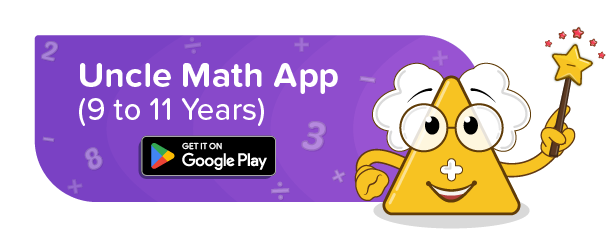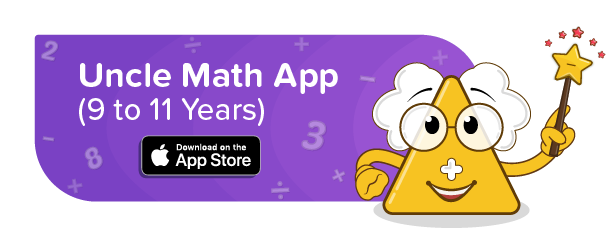
Math Story : Estimation Of Sum
A Thoughtful Guess
“Hello, Uncle Math! What are you up to?” says Squarho. He has come to visit Uncle Math’s lab to meet him. “Nothing much dear. I am just counting and adding these number of balls as I need to send them to Uncle Science for an experiment”, he replies. “Ah! Counting and addition! I am an expert at them. Come on, let me show you”, says overconfident Squarho.
“Haha! This is not that easy as this looks”, says Uncle Math. “Huh! I am Squarho! I can do anything”, he replies arrogantly. “Alright! As you say. Let’s make it more interesting. I will give you objects to count and add, and you will need to give the answer as fast as possible. Even if you give a close enough answer, I would mark it correct. What do you say?” suggests Uncle Math.
“Yes! That’s a good idea. I am all set”, says Squarho. Do you think he will be able to complete the tasks? Or will his overconfidence let him down? Let us find out.

“Alright! Let’s begin. How many balls are these?” asks Uncle Math placing some balls in two sids on the table. “So easy! Haha! These are 3 + 2 = 5 balls”, answers Squarho. “Well done!” he says and plans his next question.
“How many balls are these?” asks Uncle Math placing some more balls on the table. “Huh! So easy and silly! 5 balls in one side and 7 in another. So these are 1, 2, 3, 4……ah 12 balls”, answers Squarho. He is even more confident now. “That was quick”, says Uncle Math with a naughty smile. What is his next question going to be?
Uncle Math places a lot of balls on the table this time and asks the same question. “Hawww! So many balls! I can count them first and add them later”, thinks Squarho. “1, 2, 3, 4, 5, 6, 7, 8…” he starts counting. “Oh no! I thinkI got confused! I’ll start counting again”, he says. This goes on for a while.
“Come on! Hurry up!” reminds Uncle Math. It’s been a while, Squarho finally has finished counting the balls of both the columns. “So there are 26 balls in one side and 13 in another! Phew! I’ll quickly add them”, he thinks and start drawing a table to add both the numbers.

“You are taking too long! What happened to the expert Squarho?” mocks Uncle Math. “Come on! I do not need exact answer, atleast try to give me a close enough answer”, he says. Squarho is trying, but is getting confused. He finally gives up.
“I was overconfident! Sorry, Uncle Math”, apologizes Squarho. Uncle Math forgives him and says, ”Confidence is good until it does not stop you from achieving your goals”. Squarho realizes his mistake and decides to not repeat this.
“Now, let’s get back to the addition. So there were 26 balls in first column and 13 in another. So there are around 40 balls altogether”, he says swiftly. “Haww! So fast? How did you add so fast? And why are you saying ‘around 40’. What does that mean here?” asks surprised Squarho.
“Haha! All I did was guess the total balls. When we guess, we do not say the exact answer. This is called estimation”, explains Uncle Math. “Estimation? Also guess can be random too right?” asks Squarho. “No. Estimation is making a thoughtful guess instead of random guess”, he explains.

“How can I make a thoughtful guess”, asks Squarho. “Through rounding numbers. In this case, I rounded up number 26 to 30. Then I rounded down 13 to 10. Now adding 30 and 10 is easy and fast. So the anwer is 40. This is not the exact answer, that is why we use terms like about, around, approximately while estimating”, explains Uncle Math.
“Oh! That’s so smart. Apart from faster calculations, does estimation have any benefits?” asks Squarho. “Absolutely! Estimation is very helpful when we do not need exact answers. For example: Making a list of number of guests for a party, finding the total number of objects etc.” explains Uncle Math.
“Wow! Estimation is so good. I will use it fom now”, says Squarho. Did you ever realize that guessing can be helpful too? Random guessing or thoughtful guessing, which one would you prefer from now? Will you also use estimation from now on in your day to day activities like Squarho?

We Learnt That…
- Estimation is like guessing, but when we estimate, we make a thoughtful guess.
- We can estimate by rounding numbers.
- Whenever we estimate, we always use the terms like approximately, about, almost, roughly etc, to indicate that this is not the exact answer.
- Overconfidence is not good.
Let’s Discuss
- What was Uncle Math doing?
- What was I overconfident about?
- Could I count the balls and find their total? Why?
- What is estimation? How can we estimate?
- “Confidence is good until it does not stop you from achieving your goals” Do you agree? Why or why not?




